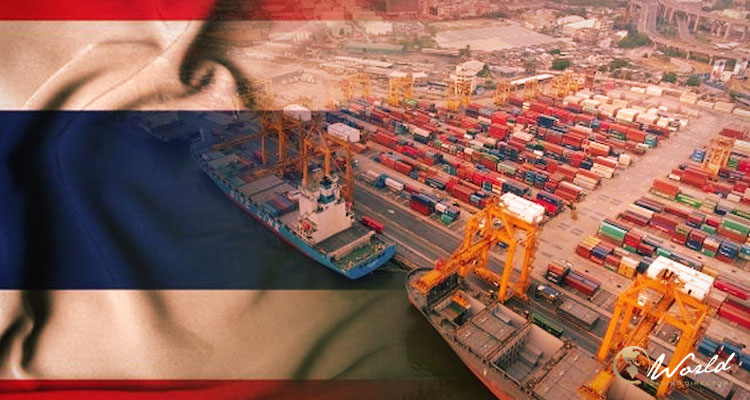In a move that could significantly transform Bangkok’s waterfront, Thailand’s Transport Ministry has approved the exploration of Bangkok Port as a potential site for a large-scale entertainment complex. The proposal, announced on Friday by Minister Suriya Jungrungreangkit, outlines a comprehensive development project that could change the landscape of the port and surrounding areas.
Exploring opportunities for Bangkok Port:
The Bangkok Port, or Khlong Toei Terminal, is strategically located along the Chao Phraya River, one of Bangkok’s major waterways. This site has already been recognized as an important maritime hub due to its large harbor and ability to accommodate large vessels. Its considerable land area and scenic river views have now made it an attractive candidate for a major entertainment complex.
Minister Suriya indicated that his deputy, Manaporn Charoensri, would oversee the creation of a committee tasked with assessing the feasibility of developing such a complex at locations like Bangkok Port. Several other potential sites are also being considered, with a particular focus on areas with substantial land and access to prime infrastructure. The potential for a yacht marina has also been discussed, adding to the appeal of the location for both tourists and investors.
As one of the largest urban centers in Southeast Asia, Bangkok is seen as a prime location for such a development. However, while Bangkok Port stands out due to its size and waterfront access, the Transport Ministry’s role in the project is limited to feasibility studies. Decisions regarding other regions, like Laem Chabang and Pattaya, which could also house similar complexes, will be determined by a national committee.
While the proposal for an entertainment complex at Bangkok Port has generated enthusiasm, it has also raised concerns, particularly regarding the potential for legalized gambling. The development of these complexes could include casinos, a move that has sparked significant debate within the country.
Sangsit Piriyarangsan, a prominent academic specializing in the social issues tied to gambling, has voiced apprehension over the government’s ability to manage the additional challenges posed by legal gambling. As a former senator and expert on gambling’s socio-economic impacts, Sangsit warned that legalizing gambling in such a setting could exacerbate existing issues surrounding illegal gambling operations. Thailand has long struggled with underground gambling, and introducing legal options may not address these concerns effectively.
He expressed particular concern over the risks associated with online gambling. “Casinos typically target adults, whereas online gambling seems easily accessible to younger people,” Sangsit remarked, pointing out that online platforms make it particularly difficult to enforce age restrictions. According to Bangkok Post, this raises the potential for increased addiction among children and adolescents, a serious issue that Sangsit believes has not been adequately addressed by government policies.
Pattaya’s support and investor interest:
In contrast to the concerns voiced by academics like Sangsit, some local leaders see the proposed entertainment complexes as a way to stimulate economic growth. Pattaya’s mayor, Poramet Ngampichet, has been vocal in his support for the initiative, suggesting that an integrated entertainment complex could become a key driver for the city’s economy and tourism industry. Mayor Poramet envisions a development that would go beyond just a casino, including theaters, water parks, shopping malls, and other family-friendly attractions designed to appeal to a wide range of tourists.
Pattaya’s government has been proactive in pushing for such developments through the “We Love Pattaya” campaign, which advocates for projects that will attract both domestic and international visitors. While there is excitement about the project, Mayor Poramet emphasized the importance of establishing clear regulations to ensure the complex does not lead to harmful gambling practices. He fully supports the idea but insists that the government should carefully design policies to manage the risks involved.
At a national level, the government has also noted that large international companies are already expressing interest in entering Thailand’s entertainment sector. Industry giants such as Las Vegas Sands, Wynn Resorts, and Caesars Entertainment have reportedly shown strong interest in bidding for the country’s Integrated Resort (IR) licenses. Meanwhile, Macau-based Galaxy Entertainment is preparing to submit a proposal for a Bangkok-based complex, signaling the growing global interest in Thailand’s emerging entertainment market.
As the Thai government explores potential sites and develops detailed policies for these entertainment complexes, it faces competition from international investors eager to stake their claim. The bidding process for licenses is expected to be competitive, with leading companies positioning themselves for what could become a significant market opportunity.



